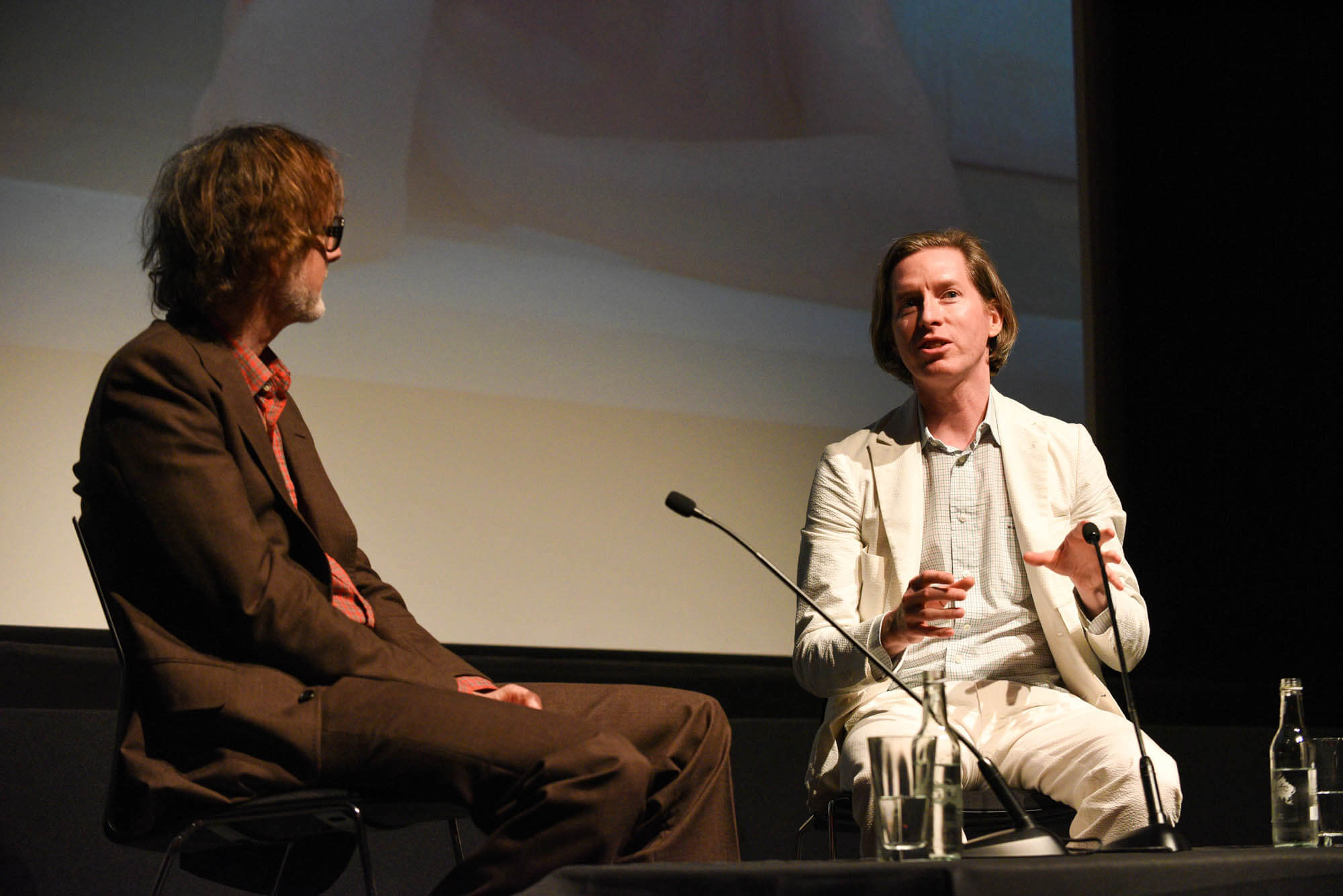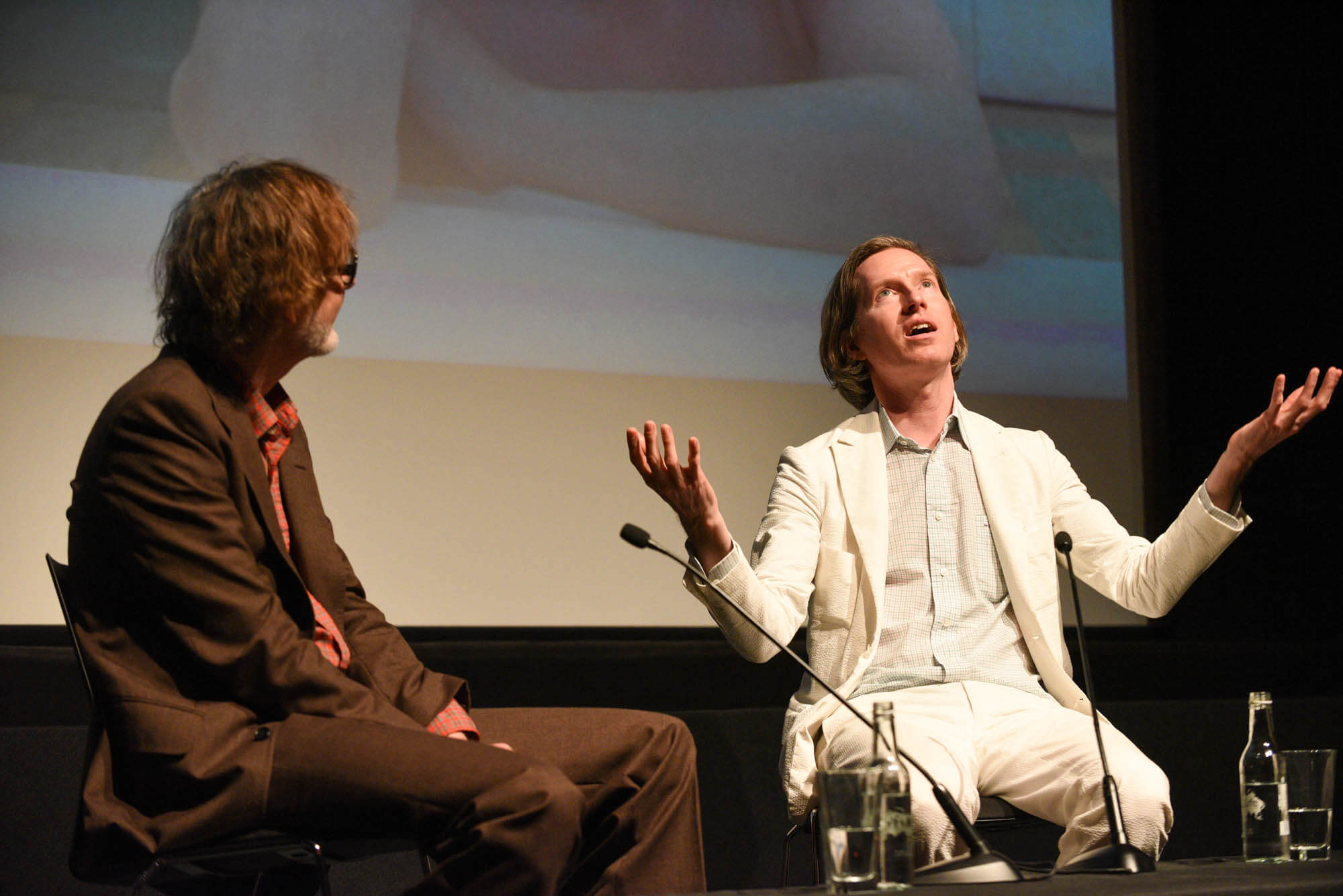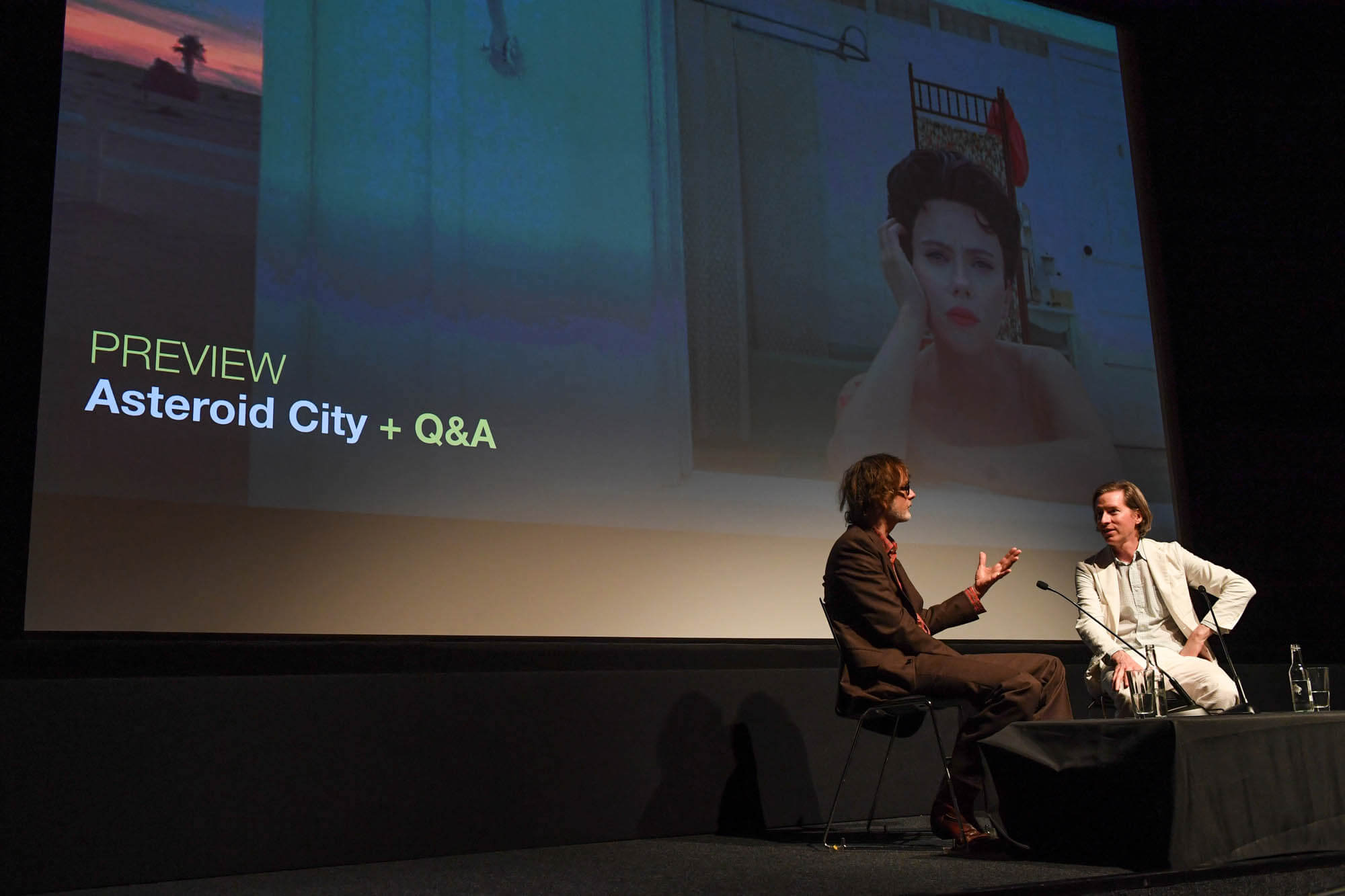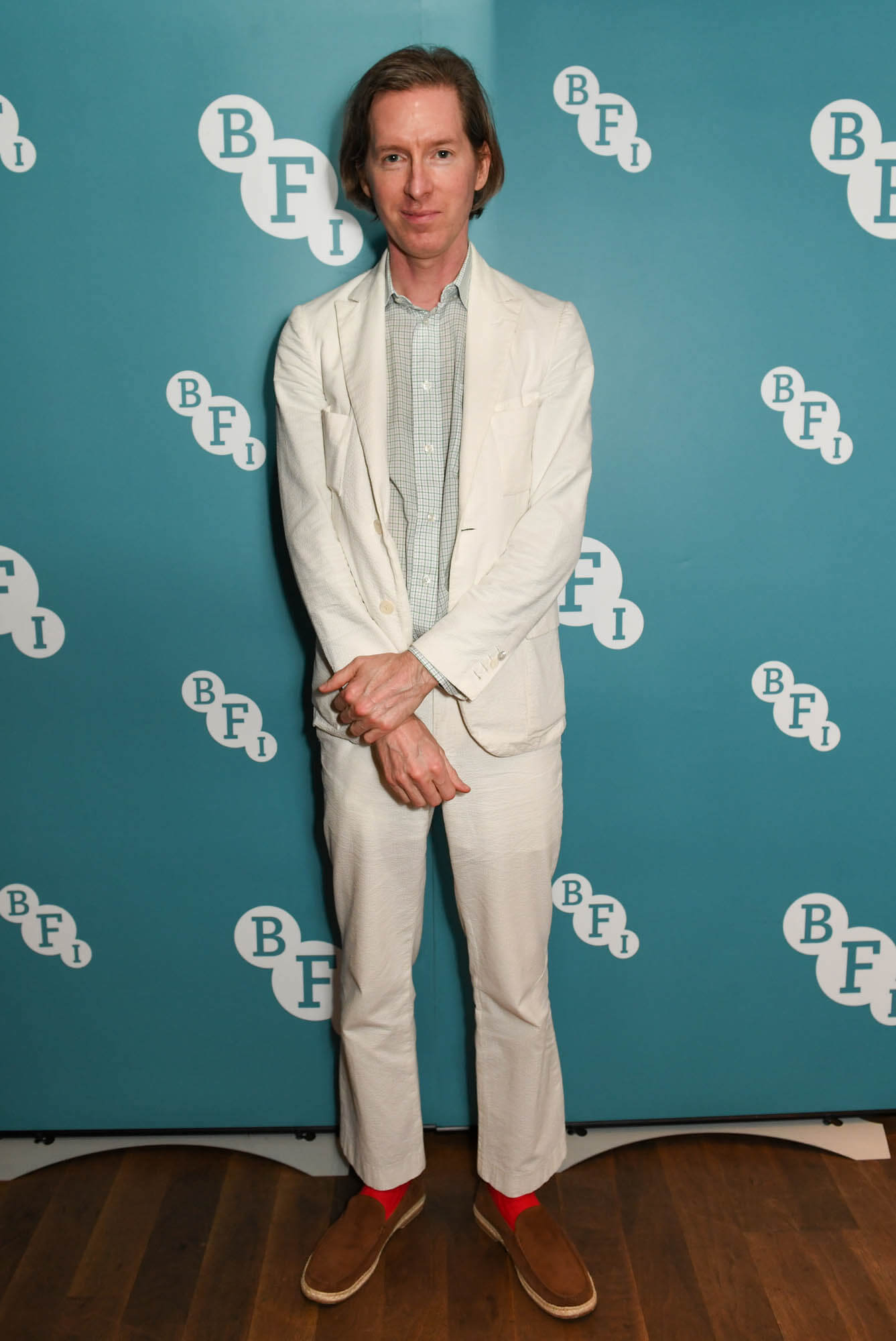Everyone famous in Asteroid City


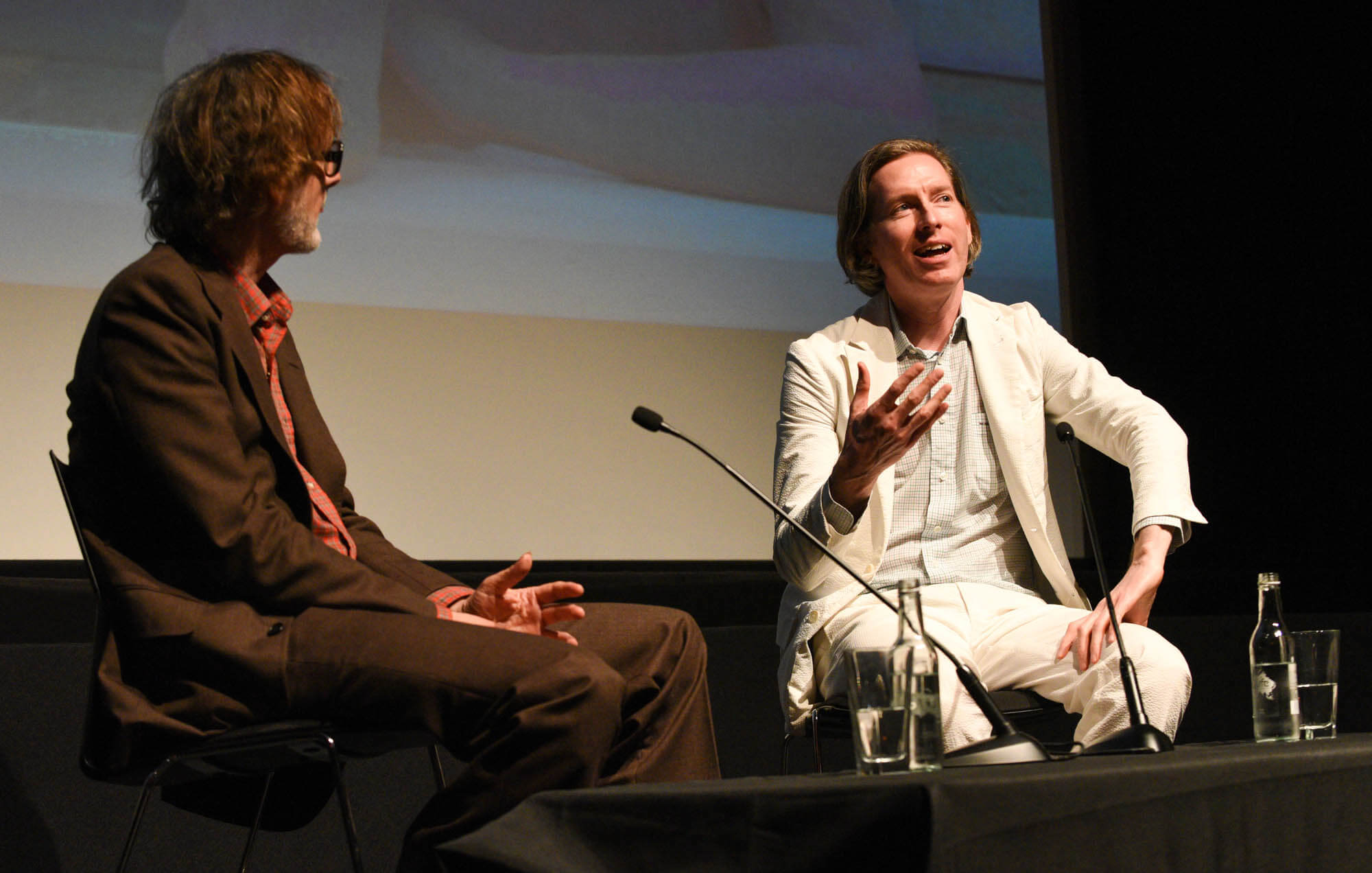
Wes Anderson is a filmmaker who has long been interested in dysfunctional families, fathers and sons, grief, love, and a sense of style so precise he’s his own sub-genre of cinema. His latest, Asteroid City, embraces all of Anderson’s usual quirks and pursuits, with an added dash of mothers and daughters, performance, and Americana all compiled in a retro sci-fi comedy-drama.
Anderson has been on an incredible streak over the last decade-plus, but even after such stellar films as The Fantastic Mr. Fox, Moonrise Kingdom, and The Grand Budapest Hotel, Asteroid City feels like more than the sum of its parts, not only Anderson and his troupe of rascally collaborators working at the highest level, but also a synthesis of all Anderson’s biggest ideas and most deeply felt emotions.
Asteroid City features multiple levels of artifice. Bryan Cranston appears in a 4:3 square-framed, black-and-white framing device as the host of a television show which is featuring the making-of story of a new play from renowned American playwright, Conrad Earp (Edward Norton invoking Tennessee Williams). The play-within-a-play is “Asteroid City”, which is depicted on screen in a CinemaScope format (2.39:1 for the nerds) in bright Technicolor. Everyone who appears in “Asteroid City” also appears behind the scenes, and in one fourth-wall breaking moment, Cranston’s narrator pops into colorful frame, mistaking his cue. Anderson has a sense of humor about his own tortured artificiality.
The central story revolves around Augie Steenbeck (Jason Schwartzman), a recently bereaved widower struggling to tell his four precocious children that their mother died. He’s a war photographer, the kind of silent, stern-faced man characteristic of a certain era of American masculinity, but he’s played with suppressed nervous energy by Schwartzman. Behind the scenes, “Augie” is played by Jones Hall, an actor who invokes Method revolutionaries Marlon Brando and James Dean. Schwartzman gives a brilliant double performance, flipping from Augie’s repression to Jones’s freewheeling friendliness—implied to be a willingness to sleep his way up—all while carrying over something of Augie’s divorced-from-himself nature.
Scarlett Johansson also does a double act—triple act, really, as she is an actress playing an actress playing an actress—starring as actress Mercedes Ford behind the scenes and actress Midge Campbell within “Asteroid City”. Johansson’s penchant for deadpan delivery well suits Anderson’s style, though her breathy vocal break over the word “uncles” is immediately, despairingly evocative of a horrendous past that at once recalls the history of Marilyn Monroe and Ben Stiller’s performance in The Royal Tenenbaums and his memorable, emotional delivery of, “I’ve had a rough year, Dad.” Anderson is often accused of lacking emotion in his work, but Asteroid City reveals itself in bubbles of intimacy and feeling that seep through the polished facades damaged characters use to navigate the world.
All this is to say that Asteroid City is funny. Augie and Midge are wounded animals scurrying for cover in the remote, relentlessly sunny eponymous desert town, which is itself a farce of Americana. The town is a purpose-built set designed to look fake, a roadrunner puppet appears as a running gag that makes the scenery even more cartoonish. Steve Carell stars as a roadside motel manager promising comforts he can’t deliver and selling parcels of arid desert land for $10 a pop out of a vending machine in an obvious grift. (The vending machine that makes perfect martinis is unremittingly cool, though.)
Much of Asteroid City is occupied with fakeness, particularly with deconstructing various myths of Americana. Augie is, on paper, a big tough type, but he is so clearly swamped with grief, not even a fling with the bombshell Midge can distract him. And repeated references to the “bad men” in Midge’s past reveal her own wounds, and the reason why she throws herself into her various roles as troubled women despite preferring comedy. Meanwhile, Augie’s genius son, Woodrow (Jake Ryan, who broke out in Moonrise Kingdom), is experiencing first love with Midge’s equally genius daughter, Dinah (Grace Edwards). Woodrow and Dinah are young and not yet hardened by life, but they have already absorbed some of the self-protective traits of their respective parents.
Not to be outdone by their parents, the genius children of the Junior Stargazer Honorees bring their own set of eccentricities to the story. Particularly funny and effective is Ethan Josh Lee as Ricky Cho, not only a brilliant budding scientist but also a dogged student journalist determined to fight The Man. Ricky’s battle with General Gibson (Jeffrey Wright) is one of the film’s best bits. And Aristou Meehan is pitch perfect as the annoying daredevil, Clifford, who swings from obnoxious to devastating in one line and nails it. The triplets who play Augie’s witchy daughters—Ella, Gracie, and Willan Faris—deliver perfect comedic relief while still communicating children adrift in a world of adults. Through the triplets, it’s easy to see the stamp of Augie’s glamorous, interesting but dead wife (played behind the scenes by Margot Robbie).
Asteroid City is at its best when it’s focused on the interior lives of characters invested in maintaining crisp facades for the people around them. There are some very funny jokes—Rupert Friend appears as a singing cowboy whose every step jingles even though he’s not wearing spurs, a brilliant gag—and some deeply felt moments, all which pay off in the film’s bittersweet climax. There is also a(nother) fourth-wall breaking moment of unrepentant corniness when legendary acting teacher Saltzburg Keitel (Willem Dafoe) leads his class in a repetitive chant of, “You can’t wake up if you don’t fall asleep.” It’s a direct appeal to the audience to give ourselves over to the artifice, to “fall asleep” so that we can experience the awakening of cinema.
The dizzying nested narrative eggs of Asteroid City seem designed to defy those who seek to explain every inch of a film, to dispel all mystery and crush ambiguity in art. Ten people can watch Asteroid City and come up with ten different answers as to what it’s about, because it’s about so many things at once, and not every narrative thread resolves neatly. It’s not messy—Anderson never is—but there are open-ended elements that suggest life goes on after the cutaway, that characters live on in our imaginations, if not the page or screen.
We are along for the ride, witness to the making of a new play and to a story of complicated people under duress in forced proximity. Despite intense levels of artifice, Asteroid City is a heartfelt, personal work, an artist’s plea to love art for art’s sake, and to have grace for ourselves and others set amidst a 1950s Americana landscape that can’t cover the anxieties and injuries of American life. What we take from it is what we are willing to surrender to it, and to Wes Anderson, the maestro of an aesthetic and emotional cinematic symphony.
Oh, and there’s a super cute alien, played by Jeff Goldblum, of course.
This review was published during the WGA strike of 2023. The work being reviewed would not exist without the labor of writers. Asteroid City is now playing exclusively in theaters.
Attached: Wes Anderson in conversation with Jarvis Cocker during the "Asteroid City" BFI Preview Screening & Q&A at BFI Southbank on June 21, 2023 in London, England.

